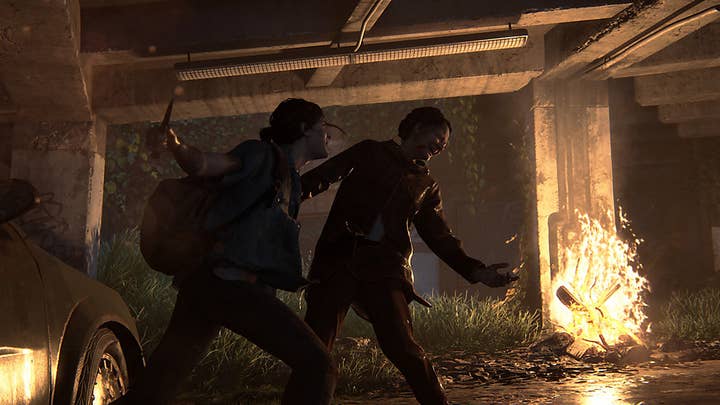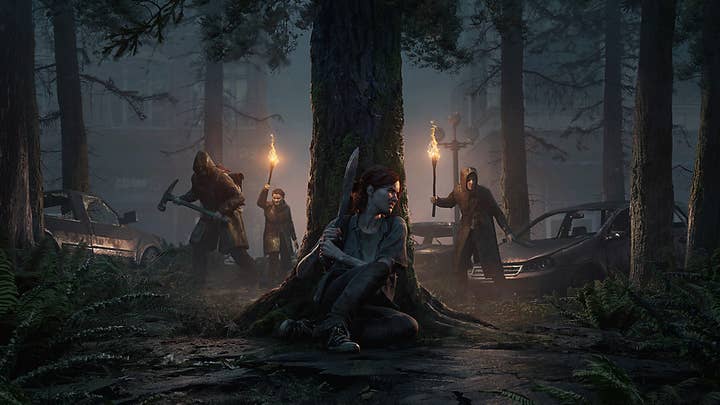The Last of Us Part 2 | Critical Consensus
Naughty Dog's latest is a great achievement, but a sky-high Metacritic score masks discord among critics about its treatment of violence
During the five years I spent reviewing games as part of my job, it became clear that AAA products were at a distinct advantage when it came to receiving high scores. Qualities like graphics, sound, environmental detail and scale had long been the founding stones of video games criticism, and while many websites were attempting to offer more cerebral takes, the legacy of that thinking persisted.
Pretty much any game with enough resources and technical craft behind it was likely to be given a high score from the majority of critics, however little imagination or emotional weight they carried besides. Annualised franchises chained together years of 80-plus Metacritic averages, despite the absence of meaningful creative progress. Making a polished game is far from simple, of course, but in terms of reviews, the difference between being the sum of your parts and genuine inspiration was represented by the distance between 85 and 95 -- and often received no more space in the text than cover mechanics and visual sheen.
It is striking, then, to read so many reviews of The Last of Us Part 2 that barely mention the old pillars of games criticism. Venerable websites have published long essays that seem to care about nothing more than its themes and how skillfully they're handled. Read enough reviews and you'll quickly see that Naughty Dog has once again produced a technical marvel, but on this occasion, there is a clear sense that dwelling on that would be to miss the point of what Sony's first-party studio is trying to achieve.
"There will be many players who don't like where this story takes them, but by God, it's emotionally effective"
The Guardian
According to USGamer's Kat Bailey, The Last of Us 2 resonates in a different way to its predecessor, shifting focus from weary father-figure Joel to Ellie, who is moving into full adulthood while processing the events of the first game.
"Its first ten hours are masterful," Bailey wrote. "A white-knuckle journey through a beautifully rendered post-apocalyptic Seattle crawling with Infected, Wolves, and a cult called the Scars... It moves seamlessly from one gorgeous location to the next, layering in traversal puzzles that manage to feel organic without ever becoming contrived or monotonous -- no mean feat for a game of this type.
Bailey added: "Ellie's initial jaunt through Seattle is by far its strongest section, carrying with it a raw and focused emotional edge that's missing in the more melancholy first game. It's apparent from the start that Seattle is in bad shape, dominated as it is by the war between the Wolves and the Scars. With little information to go on, it's easy to write off both groups as your typical video game bad guys: a brutal militia and a crazy cult that exist only to be murdered wholesale. Indeed, it's apparent that's exactly what Naughty Dog wants you to think, as these assumptions help to set up much of what comes after."
The skill with which Naughty Dog subverts those assumptions is at the root of both its most glowing appraisals and harshest critiques. The Last of Us Part 2 is based on a familiar clutch of gameplay systems -- stealth, weapon-based combat, environmental exploration and puzzle-solving -- but it presents them in a way that is intended to elicit a very different emotional response to the usual palette of empowerment and moral certainty.

"No video game has ever gone to these lengths to humanise the enemy, or to interrogate the violence that it asks the player to perform," The Guardian's Keza MacDonald wrote in her five-star review.
"The violence is extreme, sometimes uncomfortable, and consequential... In video games we are accustomed to an action-movie suspension of disbelief in relation to body counts, and to a straightforward moral assumption that the player characters whose perspective we inhabit are the goodies, and that the people on the other side of the aiming reticle are the baddies. The Last of Us Part 2 challenges both of these assumptions.
"This isn't a straightforward violence-is-bad story. As in most zombie fiction, violence is baked into this world and our interactions with it. Instead, it's about the motivations for that violence, the endless cycles of retribution that pull individuals or whole populations down into destructive spirals, and what it takes to break those cycles. There were parts of it that I had to endure rather than enjoy, furious or disgusted by what characters were doing -- and, by extension, by what I was doing. There will be many players who don't like where this story takes them, but by God, it's emotionally effective."
"The only point I got from the game was simply to be required to stare at violence... and then do that again, and more, and again, and more"
Kotaku
There are many reviews expressing the same basic idea; The Last of Us Part 2 is punishing and brutal, but those are deliberate choices on the part of Naughty Dog, made in service of the kind of story that video games so rarely tell. But there are many reviews that, while obviously impressed with the level of craft on display, argue that the game betrays its own message.
At various points in his review, Kotaku's Riley MacLeod refers to statements made by director Neil Druckmann and other members of the Naughty Dog team in promoting The Last of Us Part 2 -- promises that the player would be asked "philosophical questions" as part of "a commentary about the cycle of violence."
"My playthrough of The Last of Us Part 2 felt terrible to experience," MacLeod wrote. "Over the course of my 27 hours with the game, it grew to the point of feeling nearly unbearable. This wasn't because it asked me hard questions about my own capacity for harm or revenge, or pulled some Spec Ops: The Line-style moralizing about video game violence. Despite Druckmann's promised 'philosophical questions,' I never felt like the game asked me anything. Instead, it told me 'brutality,' repeatedly and louder, until by the end I couldn't hear what it was trying to say at all.
"Characters make hideous, irredeemable choices, over and over. Everybody suffers, physically and emotionally, in graphic detail. This is all intended to prove a point, but the only point I got from the game was simply to be required to stare at violence, and play through violence, and then do that again, and more, and again, and more."

It is worth noting that MacLeod's fundamental view is expressed in many appraisals, a great many of which still awarded the game full marks. The Daily Telegraph's Dan Silver, for example, highlighted the problem with attempting to make a nuanced point about violence in a big-budget action game, a form that practically demands the player spend hours and hours killing dozens of people.
"Where Naughty Dog themselves sometimes stumble is the sheer volume of viscera players are forced to endure. Combat in The Last of Us Part 2 is beyond brutal; it's violent to the point of viciousness, and so graphic as to risk being gratuitous. Director Neil Druckmann will argue -- and, indeed has -- that this level of realism is necessary to drive home the consequences of the player's actions, and also the game's stealth mechanics make most of the murders optional anyway.
"This sort of diversity is still radical for a mainstream video game"
Time
"The defence only holds so much water. The game's camera occasionally lingers on the gore a little too lovingly, giving the impression of a voyeur rather than a documenter. And while the game's stealth elements are much improved -- this is by some distance Naughty Dog's most impressive implementation of combat to date -- the armies of enemies Ellie must pick her way through often makes bloodshed inevitable."
Despite this, Silver maintains that the second game is a greater achievement than the first, and he is far from alone. The strongest argument for that being the case, though, has nothing to do with its portrayal of violence and the purpose that serves. It is found in a more subtle but no less significant shift noted at the start of this article -- Naughty Dog's decision to put Ellie at the heart of the sequel to a game with a more typically grizzled male protagonist.
That decision led to a depressingly familiar backlash from a certain corner of the gamer community, one underscored by misogyny and homophobia. In a review for Time Magazine, Eliana Dockterman was less kind about the "rather clichéd and tiresome lesson about the endless cycle of revenge" that so impressed other critics, and instead focused on the equally subversive aspects of The Last of Us Part 2 that risk being lost amid the bloodshed.
"And it's no small thing that Naughty Dog decided to primarily tell this story not with the typical white, straight, male antihero, but a gay woman," Dockterman wrote. "Ellie's bisexual girlfriend Dina and a trans character (whose identity I'm not permitted to spoil) also play major roles. The women in the game don't have the buxom bodies still popular among many game developers, but realistic and varied builds. This sort of diversity is still radical for a mainstream video game, though the core cast of characters remains primarily white, and the game avoids any acknowledgment of the glaring racial divide in this country, which would not simply dissipate in a post-apocalyptic world.
"Naughty Dog, to its credit, has refused to budge on its commitment to all aspects of The Last of Us Part 2. On the game's press tour, Druckmann has repeatedly said that diversifying the story's characters has allowed them to create a more interesting narrative -- though he's also warned fans that this particular story will not be 'comfort food.' If those who embrace it are ultimately let down by its unrelenting bleakness, they can at least take heart in the possibility that it's paved the way for something just as groundbreaking -- and a little more optimistic -- to follow in its footsteps."

